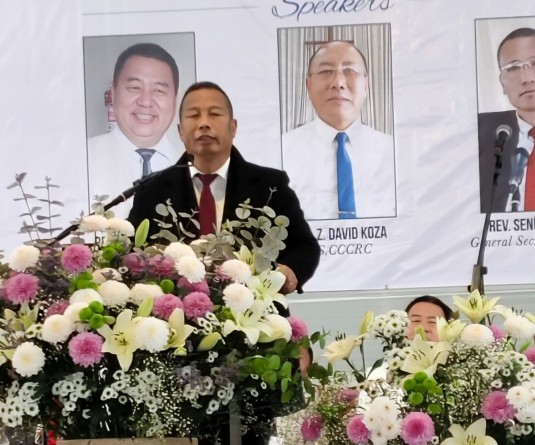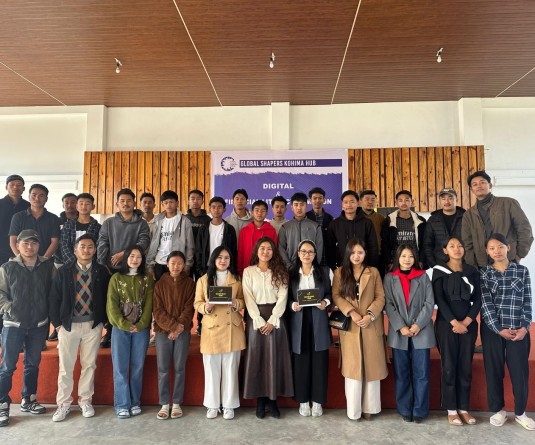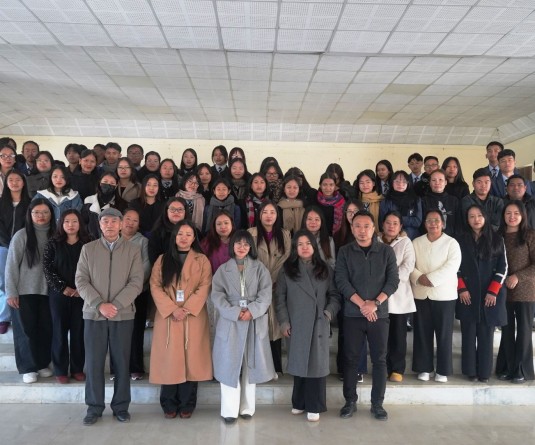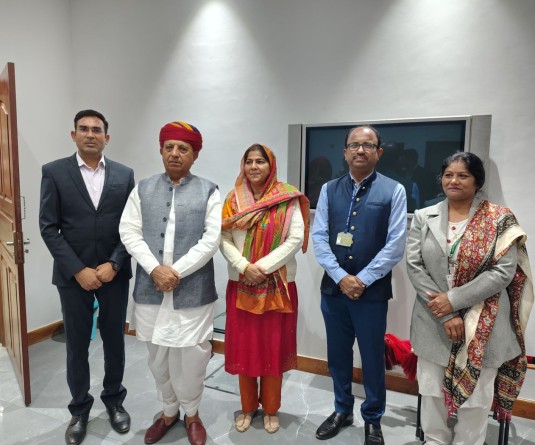
Says AFSPA may be withdrawn from conflict zones if situation improves
NEW DELHI, MAY 6 (PTI): The ongoing Naga peace talks were being followed up with utmost sincerity and the outcome of the dialogue would be positive, Union minister Kiren Rijiju said today, but refused to give any time-frame for the signing of the final peace accord.
Rijiju, the minister of state for home affairs, also said the controversial Armed Forces (Special Powers) Act would be withdrawn from Nagaland, Arunachal Pradesh and other areas where it is in force once the security situation improves there.
Referring to the ongoing dialogue between the Issak-Muivah faction of the National Socialist Council of Nagaland (NSCN-IM) and the government interlocutor, the minister said the Narendra Modi government was the most sensitive toward the issues of the Nagas and the Northeast.
"The process of Naga talks are being followed up with utmost sincerity. So the outcome will be positive," he told PTI in New Delhi.
Rijiju refused to say anything when asked about the possible dates for signing the final peace accord to bring lasting peace in insurgency-hit Nagaland.
A framework agreement was signed on August 3, 2015 by NSCN-IM general secretary Thuingaleng Muivah and the government's interlocutor R N Ravi in the presence of Prime Minister Narendra Modi.
The framework agreement had come after over 80 rounds of negotiations spanning 18 years, with the first breakthrough made in 1997 when the ceasefire agreement was sealed after decades of insurgency in Nagaland which started soon after India's independence in 1947.
The minister said AFSPA, which empowers security forces to conduct operations, arrest anyone anywhere without prior notice, could be removed from all the places where it is in force when the security situation improves there.
"Since the security scenario in the Northeast has improved in the last four years, AFSPA has been removed from many areas. We are hopeful that with further improvement, it may be lifted from the remaining few areas in the near future," he said.
AFSPA has been completely removed from Meghalaya and partly from Arunachal Pradesh but it is in force in Nagaland, Assam and three districts in Arunachal Pradesh. The controversial law is also in force in Jammu and Kashmir.
Agreement should not break our ‘oneness’, says Zeliangrong bodies
DIMAPUR, MAY 6 (MExN): The Zeliangrong leaders consultative meeting held on May 5 at Lodiram Village, NC Hills, Assam has taken exception to reports that the final agreement between the Government of India and the NSCN (IM) “which is likely to be signed soon may not include the Zeliangrong people and their ancestral land in Assam.”
A joint statement from the All Zeliangrong Students Union, Zeliangrong Youth Federation and the Zeliangron Baudi (Assam, Manipur, Nagaland) said that this is “despite the fact that our people have allowed our land for shelter to Naga National Workers to carry out and achieve the Naga political movement, resources to sustain and to move forward the Naga National Movement, maximum support and cooperation extended apart from sacrificing precious lives, physically participated and involved in all times be it at the most critical time for the larger cause of the Naga political issue.”
The consultative meeting urged towards upholding the order of the former NSCN (IM) President, late Isak Chishi Swu issued on June 30, 2011, which stated that “Zeliangrong region will remain intact.”
“The bond of oneness of Zeliangrong people is indestructible from within and without,” the meeting affirmed while asserting that “the Zeliangrong people will not accept any solution which may render our people as the victim of the Naga political solution.”
“The Zeliangrong people will not succumb to any force which may threaten our unity and integrity within and without,” it added.
The meeting meanwhile also discussed the decision taken by the Tatar Hoho of the NSCN (IM) on March 23 which recognized Zeme, Liangmai and Rongmei as separate tribes. “The Zeliangrong people served an ultimatum to the NSCN/GPRN (IM) after series of consultations being held by giving a deadline of April 30 to revoke the arbitrary decision of the NSCN/GPRN (IM),” the statement reminded.
The consultative meeting was reportedly attended by social leaders, executive members, Member of Autonomous Council (MAC), Gaon Buras of different villages, elders, intellectuals, scholars, government officers, religious leaders, women’s leaders, youth and student leaders and the public.






